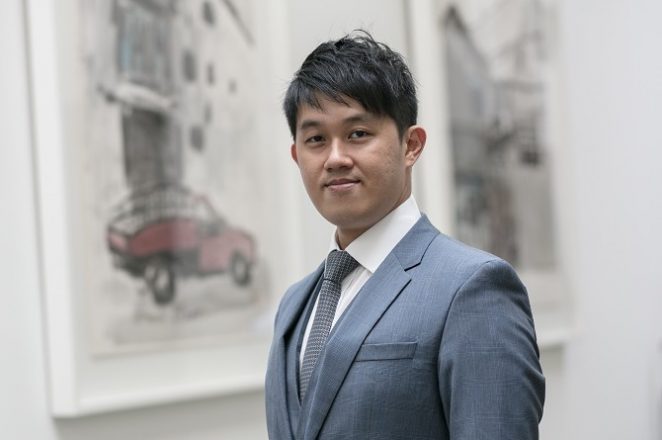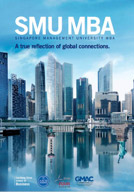
By 2016, eight years into his career, Keeve Tan was already enjoying considerable success in the banking sector. He was working in exchange traded derivatives within the global markets team at UOB in Singapore, and he’d reached vice president level.
But Tan wanted to make sure his skills stayed relevant for a long-term career in banking.
“I had financial markets expertise, but I needed broader business knowledge and leadership skills,” he explains. “In banking your career now ultimately depends on those things – not just on your technical abilities in your specific function.”
Tan soon decided on a new plan of action for his career: he would start an MBA at the Lee Kong Chian School of Business, part of Singapore Management University (SMU).
“When I first looked at the curriculum I saw how relevant it is to me as a professional looking to enhance my career in Asia,” he adds. “I was pleasantly surprised to see that innovative modules like ‘technology-enabled business’ and ‘creative and critical thinking’ were available.”
Tan, who graduates from the 18-month programme later this year, says he particularly enjoys participating in the case studies that form an integral part of the 18 modules in the SMU MBA.
“The school really focuses on practical case studies, not just theory. As a student, I’ve got so much more out of debating the issues with my peers in case study groups, rather than simply reading text books,” says Tan.
SMU has also been pioneering writing Asian case studies to complement Western-based ones.
“That’s a big advantage SMU has over many other business schools, which don’t look so much at Asia,” says Tan. “The challenges facing companies in the West and in Asia are vastly different, as are the challenges within the Asian region itself.”
“For example, one of our recent case studies was about how US food giant Kraft had to change strategies to rescue its Oreo biscuits brand in China because of huge differences between American and Chinese consumer behaviour. Even an iconic American product can face failure in Asia.”
But how applicable are biscuits to Tan’s industry, banking? “I wouldn’t want to just do financial case studies or be in a class that’s full of bankers. I’m learning more from studying other sectors – banking is ultimately about service to customers, so we can take lessons from all sorts of businesses.”
“When you’re in a case study group at SMU you interact with people from different backgrounds,” says Tan. “You hear opinions that make you rethink your preconceived ideas and you bring all these ideas and opinions together to come up with a solution. The communication and leadership skills you learn are very relevant to careers in banking.”
Tan is also learning other hard and soft skills at SMU that are helping him on the job. He says he particularly enjoyed the marketing module, one of the core components of the degree.
“Before SMU I took marketing for granted and thought it was an expense that would be the first thing we’d cut in any downturn. Now through real-life case studies during the MBA I see how investing in marketing is crucial to the bottom line and can help turn businesses around.”
Two other compulsory courses, operations management and financial accounting, have changed the way Tan thinks about his work.
“They’ve broadened my knowledge of what the finance and operations teams do at my bank,” he says. “Until recently I’ve mainly made decisions from a front-office perspective; now I take the back-office into account. I’m not an expert, but I better understand their challenges, and I have a more holistic understanding of the bank when I contribute to business meetings.”
Tan says doing the SMU degree part-time is a big advantage when it comes to implementing his new knowledge.
“If I get an idea from an MBA class on Tuesday night, I can start making a change in my team on Wednesday. Then I can see how it’s working out and ask my professors for feedback – they’re always happy to discuss work-related issues. I learn from my classes and improve my work performance on an ongoing basis.”
Speak to our Admissions Advisors
Singapore Management University
Lee Kong Chian School of Business
Graduate Programmes Office, Level 4
50 Stamford Road, Singapore 178899
Tel: +65 6828 0882
Join us at the upcoming events
Via Gerolamo Cardano, 1, 20124 Milano MI, Italy
1 Raffles Drive, Makati Avenue, 1224, Makati City
Bayerstraße 41, 80335 München, Germany
You may also be interested in
Executive Master of Business Administration (EMBA)
